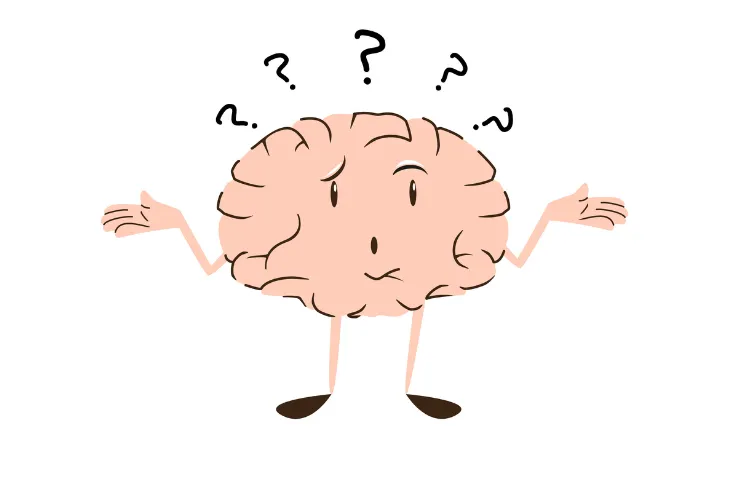- Motion sickness occurs from movement and happens when your brain is receiving mixed signals from your eyes, ears, and body.
- The most common symptoms are nausea and dizziness.
- Though motion sickness is not pleasant, it’s not usually a medical emergency and can be treated with medication or home remedies.
Have you ever been in a car or boat and suddenly felt nauseous and/or dizzy? You might suffer from motion sickness which is triggered by movement. Motion sickness commonly occurs when you’re in a car, bus, plane, or boat. But some people even get motion sick when at amusement parks or during virtual reality experiences.
Motion sickness is not fun and can quickly derail your plans but luckily there are ways to prevent it or at the very least, reduce its effects. Here’s what you need to know about motion sickness, including the common signs and causes. We’ll also look into how to treat and prevent it.
What Is Motion Sickness?
Motion sickness is the feeling of sickness that occurs from movement. The Cleveland Clinic says it happens when “your brain can’t make sense of information sent from your eyes, ears and body.”
People who experience motion sickness often get sick when traveling such as driving in a car, flying in an airplane, or even when riding a rollercoaster at an amusement park. Some people refer to it as carsickness, seasickness, or airsickness but the fact is it’s all the same and is simply motion sickness.
Common Signs and Symptoms of Motion Sickness
So, how do you know if you get motion sickness? Telltale signs of motion sickness include dizziness and nausea. Sometimes nausea can be so bad you might even vomit. Your saliva production may also increase and due to nausea, you’ll likely lose your appetite too.
It’s also common to develop cold sweats, fatigue, and irritability. Motion sickness can come out of nowhere too. You may be completely fine one moment and then suddenly experience these symptoms the next. In severe cases, the Cleveland Clinic says you may also develop rapid breathing or gulping for air.
Who’s At Risk?
Anyone can get motion sickness but some people may have an increased risk. According to the Centers for Disease Control and Prevention (CDC), children 2- to 12-years old are especially susceptible to motion sickness. Women are also more likely to experience it, especially when pregnant or menstruating.
The Cleveland Clinic also says having a family history of motion sickness or an inner ear disorder can also increase your risk. People who get migraines are also more prone to motion sickness and individuals with Parkinson’s disease have an increased risk too. It’s important to note that motion sickness isn’t a viral infection and it’s not contagious.
What Causes Motion Sickness?
Motion sickness is caused by confusion in the brain. The Cleveland Clinic explains that your brain receives signals from the “motion-sensing parts of your body,” like the eyes, inner ears, and muscles and joints. When these parts of your body send conflicting information to your brain, your brain doesn’t understand if you’re moving or stationary. So, when the brain is confused it causes a reaction that makes you feel sick.
For example, people often get sick in the car because their eyes see objects passing by, indicating you’re moving, but your muscles and joints sense that you’re stationary. These two conflicting messages can confuse the brain. Other activities can cause motion sickness too like reading while moving, roller coasters, riding in a boat, playing video games, and watching movies.
When to See a Doctor for Motion Sickness
Although motion sickness symptoms can be uncomfortable and disrupt your day, it doesn’t usually lead to serious problems. However, if it causes excessive vomiting it may lead to dehydration and low blood pressure which does require medical attention.
The source says you should also see a doctor if symptoms of motion sickness develop when you’re not involved in moving activity. Doctors can diagnose motion sickness by reviewing your medical history and symptoms.
How Is Motion Sickness Treated?
Motion sickness is usually mild and sometimes the symptoms go away on their own after the motion that is causing your symptoms stops. Other times, you may need medication to help ease the symptoms.
There are over-the-counter and prescription medications available for motion sickness so it’s important to talk to your doctor to find out which is best for you. Some of these medications can cause drowsiness so it’s important to know the side effects. If the medication does cause sleepiness, don’t drive a car or operate machinery when taking it.
WebMD also says there are other things you can do to help make the motion sickness go away. The source says to try and find something to focus on and take deep breaths. Closing your eyes or getting fresh air may help too.
How to Prevent Motion Sickness
Anyone who has experienced motion sickness knows how uncomfortable the symptoms can be. Feeling nauseated can ruin your day. Luckily there are steps you can take to help prevent it in the future.
You can prevent motion sickness by strategically choosing your seat when traveling. Chewing gum and being mindful of what you eat and drink may also be helpful. Let’s take a closer look at these prevention strategies next!
Be Mindful of Where You Sit When Traveling
Where you sit when traveling can make a difference. For starters, when flying try to sit over the wing and choose a window seat. When traveling by car, try and sit in the passenger seat, or at the very least be sure to face forward and look out the front window.
The Cleveland Clinic says when traveling on a bus or train, face forward and choose a window seat. When you’re on a boat, the source suggests sitting in the middle of the upper deck. And finally, if you’re on a cruise ship, try and book a room near the front or the middle of the ship on the lowest level possible — being closer to the water may be beneficial.
Focus on the Horizon
Another crucial step when traveling is to make sure you focus on something that won’t cause motion sickness. Some people get motion sick when talking to other people while moving, or when reading. The best way to prevent this is to face forward and look out the window.
Medical News Today suggests gazing toward the horizon in the direction of travel. The source explains “this helps to re-orient the inner sense of balance by providing a visual reaffirmation of motion.”
Ginger
Ginger is an aromatic spice that can be used in baking and cooking, but it has also been used medicinally for thousands of years. It turns out, ginger may help prevent and treat motion sickness too. In fact, Healthline says one study found that ginger was more effective than one of the motion sickness medications.
The source explains that research believes ginger is effective in relieving motion sickness because it “works by keeping your digestive function stable and blood pressure consistent, which can reduce nausea.” Ginger is available in many forms too. You can get it raw or dried at the grocery store and it’s available in tablets. Talk to your doctor to find out if ginger may be an effective remedy for you.
 Shutterstock/pilipphoto
Shutterstock/pilipphotoChew Gum
According to Medical News Today, chewing gum may help relieve mild motion sickness. But it may also help prevent it too. Chewing on snacks, in general, may be beneficial. But why is this the case?
One study found that chewing helped prevent visually induced motion sickness (VIMS) by diverting attention to pleasant stimuli, such as chewing gum. The motion of your jaw may also have an effect on your inner ear’s ability to keep you balanced. Additionally, peppermint gum may offer even more benefits as it may have a cooling effect that can help your stomach relax and ease nausea.
Other Ways to Prevent Motion Sickness
Another important step in preventing motion sickness is being mindful of what you eat and drink before travel. The Family Doctor says consuming a heavy meal or greasy, spicy, and acidic foods can wreak havoc and cause your motion sickness to be worse. It’s also important to drink plenty of water and avoid alcohol.
Medical News Today says it’s also a good idea to avoid reading while traveling as this can induce motion sickness or make it worse. You should also avoid sitting in a seat that faces backward or sideways. Finally, if other individuals are motion sick, avoid watching or talking to them as it may induce motion sickness for you or make your symptoms worse.














